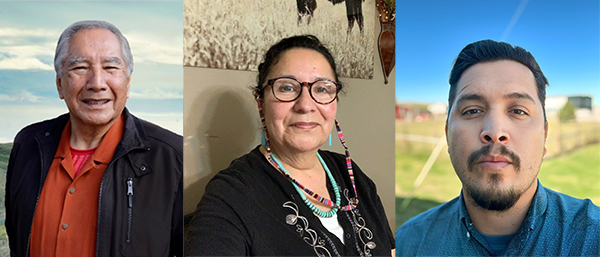The Buffalo Treaty: Indigenous Knowledge and Sustainability Collaboration Returns to SIUE
Five area institutions collaborate to dialogue with Native American and Native Canadian specialists on the Buffalo Treaty, habitat restoration, food security, economics, sovereignty, and culture

Southern Illinois University Edwardsville hosts its second Indigenous Knowledge and Sustainability forum on campus and throughout the City of St. Louis with a focus on the Buffalo Treaty. Collaborators from the Harris World Ecology Center at UMSL, the Saint Louis Zoo, Missouri Botanical Garden, the Buder Center for American Indian Studies at Washington University in St. Louis, and the Native American Studies Program at SIUE will offer free events throughout the region October 10, 11 and 12.
The Buffalo: A Treaty of Cooperation, Renewal and Restoration has been signed by more than 40 First Nations and Tribes in Canada and the USA. “Its purpose is to once again welcome the Buffalo to live among us, and it recognizes Buffalo as a wild free-ranging animal and as an important part of the ecological ecosystem,” said Amethyst First Rider (Kanai Nation, Blackfoot Confederacy).
“Native tribes, organizations, and individuals are taking substantive steps to heal and preserve their lands, waters, and life for plants, animals, and people. Environmental damage and mismanagement are leading to conditions that threaten humanity and life on earth as we know it,” said Gregory Fields, PhD, Distinguished Research Professor of philosophy. “Learning about Native environmental initiatives, like the restoration of the buffalo and their habitat, can help us think, and act, more functionally with respect to the earth, our common home.”
Fields is co-chair of the event, along with Ed Spevak, PhD, Curator of Invertebrates at the Saint Louis Zoo and Director of Saint Louis Zoo's WildCare Institute Center for Native Pollinator Conservation (CNPC).
The 2024 series covers conservation, presentations and dialogues on the Buffalo Treaty and Native environmental thought, a film festival and a museum exhibit. The SIUE event on October 11 will feature speakers from Northern Great Plains of Canada and the U.S. who are specialists on bison and the Buffalo Treaty.
- Lawyer and advocate Leroy Little Bear, JD (Kainai Nation, Blackfoot Confederacy) Alberta
- Teaching and curriculum specialist in K-12 and higher education Roxann Smith, M.Ed. (Assiniboine and Sioux Tribes of the Fort Peck Indian Reservation) MT
- Lakota Land Systems Director Chance Weston (Oglala Lakota) Porcupine, SD
SIUE's Julie Zimmermann, PhD, professor and chair of anthropology, will provide the welcome and Spevak will introduce the presenters. Light refreshments will be served.
This collaboration marks the second series dedicated to learning about indigenous communities and their current scientific, agricultural, and economic concerns and contributions. The debut series focused on culinary arts, foods and sustainability.
"Our hope for the initiative Indigenous Knowledge and Sustainability–St. Louis is to promote knowledge-exchange and collaboration among Native people and projects, and with our several institutions in the region concerned with the environment and human relationships with it,” said Fields. “We welcome the public, students, educators, and specialists in all fields to attend the events.”
Download the full schedule and register for the free events.
PHOTO: Leroy Little Bear, JD (Kainai Nation, Blackfoot Confederacy) Albert; Teaching and curriculum specialist in K-12 and higher education Roxann Smith, M.Ed. (Assiniboine and Sioux Tribes of the Fort Peck Indian Reservation) MT; Lakota Land Systems Director Chance Weston (Oglala Lakota) Porcupine, SD









